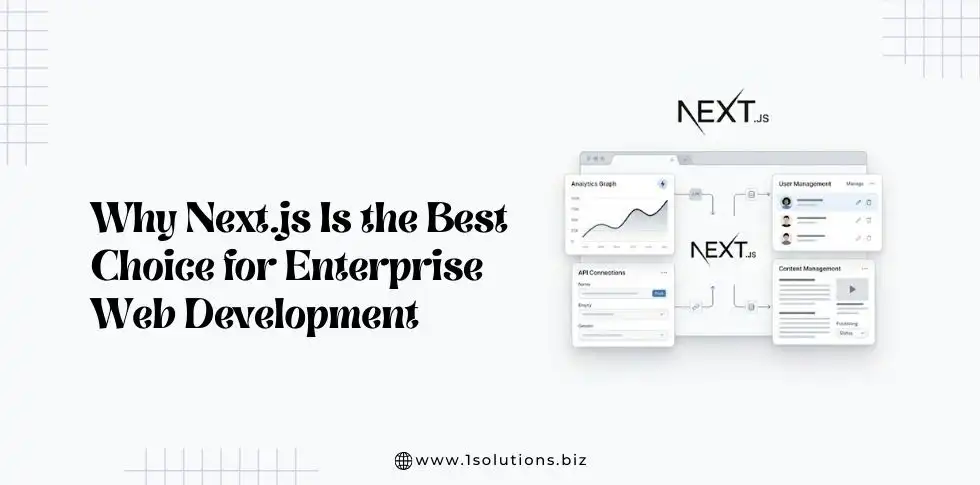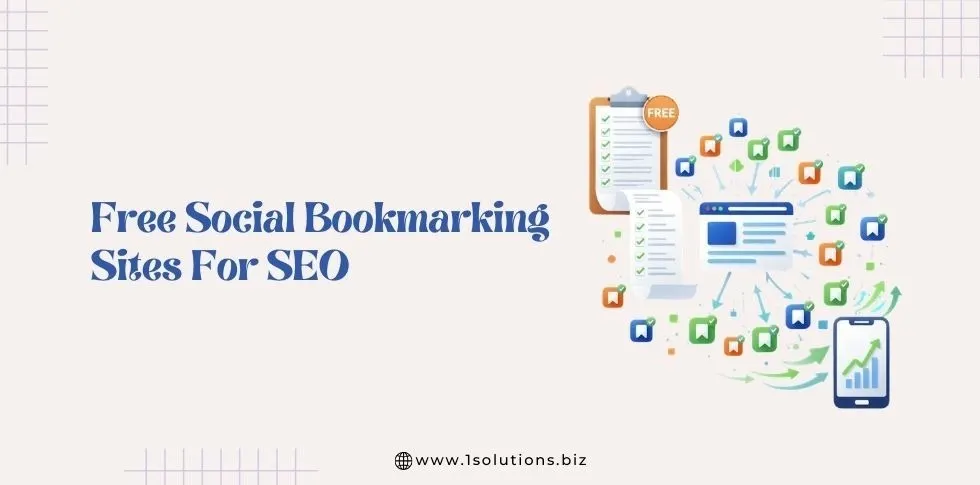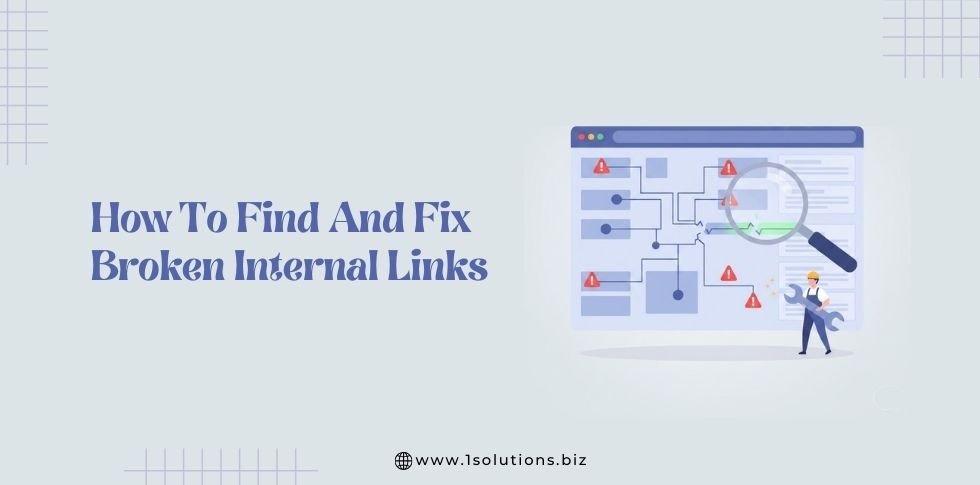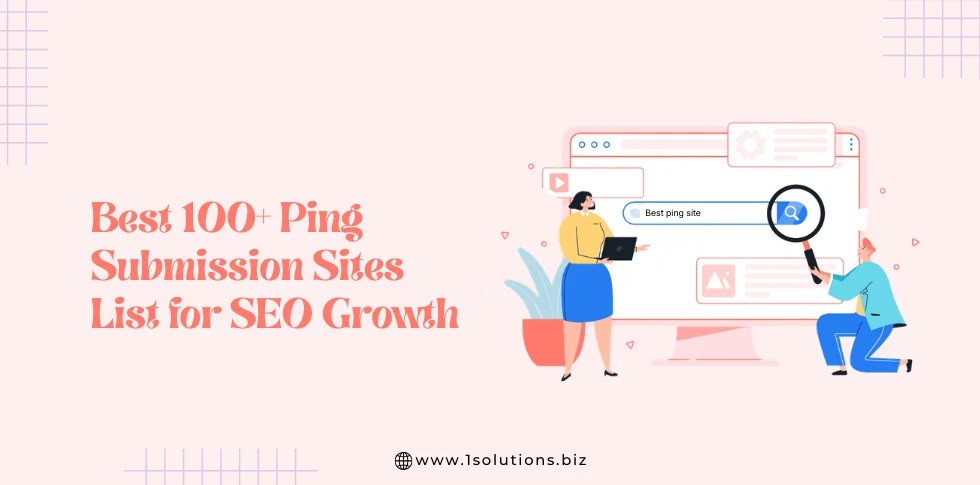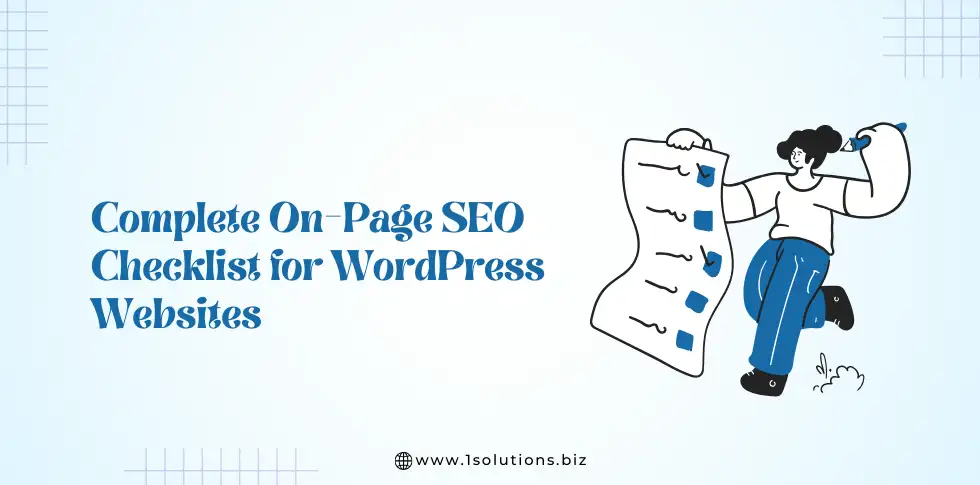What is Link Building?

Link building is a SEO technique that involves acquiring hyperlinks from other websites to your own. These hyperlinks, also known as backlinks, are crucial for improving your website’s search engine rankings.
Link building involves various strategies and techniques to attract high-quality backlinks that can drive traffic to your ecommerce business. The more high-quality backlinks you have, the higher you’ll climb in search rankings.
The #1 ranking page on Google has 3.8x more backlinks than pages ranking 2-10! [source: Search Logistics]
Link building is an integral part of Search Engine Optimization [SEO] and every digital marketing company these days focuses on building backlinks to boost organic rankings.
Understanding the Importance of Backlinks for Ecommerce

In the eCommerce business, ranking high in search results is crucial for attracting targeted visitors and generating sales. But how do search engines determine which websites deserve the coveted top spots?
Backlinks play a significant role in determining the credibility and authority of your ecommerce website. The more high-quality backlinks you have, the more Google perceives your website as a reliable source and rewards you with a higher ranking in search results.
For search engines, backlinks are the vote of confidence. They indicate that your website content is valuable and trustworthy.
Here are the key benefits of link building for eCommerce websites:
1. Increased Website Traffic: High-quality backlinks from relevant websites can send targeted visitors to your eCommerce store. When other websites link to your product pages or informative blog posts, it creates a pathway for potential customers to discover your brand.
2. Improved Search Engine Ranking (SEO): Search engines like Google consider backlinks a sign of trust and authority. A strong backlink profile, where other high-ranking websites link to yours, can lead to your eCommerce store ranking higher in search results pages (SERPs) for relevant keywords. This increases the organic visibility of your store to potential customers searching for products you sell.
3. Enhanced Brand Awareness: Backlinks from reputable websites expose your brand to a wider audience. When other established sites link to your eCommerce store, it increases brand mentions and overall visibility online. This can lead to greater brand awareness, recognition, and ultimately, customer trust and loyalty.
4. Boosted Credibility and Trust: Backlinks from trusted sources signal to search engines and users that your website is reliable and credible. This can significantly improve conversion rates and sales on your eCommerce store. Customers are more likely to buy from a brand they perceive as trustworthy.
5. Targeted Traffic Acquisition: Strategic link building from relevant websites in your niche attracts visitors who are genuinely interested in the products you sell. For example, if you sell sporting goods, getting backlinks from high-ranking sports blog articles can bring highly targeted traffic to your store, as opposed to random visitors from unrelated websites. This can lead to higher quality leads and conversions, directly growing business earnings.

Also Read- Common Myths About Backlink Building
How to Build High Quality Backlinks For Your eCommerce Store
Here are some effective strategies to build high-quality backlinks for your eCommerce store:
1. Craft Link-Worthy Content

In the age of information overload, simply having a website isn’t enough for ecommerce stores. You need to be a content hero, creating informative and engaging content that solves your target audience’s problems and compels other websites to link to you. Here’s how to craft link-worthy content that elevates your ecommerce store:
Why Content is King (and Gets Links):
Search Engine Love: Studies by Search Engine Journal show that high-quality content can significantly improve a website’s organic search ranking. The more valuable and relevant your content is, the more likely search engines are to recommend it, increasing your website traffic and brand awareness.
Link Magnet: Link building is all about creating content that other websites find valuable enough to link to. Compelling content establishes you as an authority in your niche, making your website a trusted resource that others want to reference.
Transforming Product Pages into Linkable Content:
Ditch the Descriptions: Move beyond basic product descriptions that every competitor offers. Instead, tell a story. For example, a company selling athletic wear could create a blog post titled “Conquer Your Next Marathon: Training Tips and Essential Gear,” featuring expert advice, training schedules, and links to relevant products within the content.
Content Inspiration for Ecommerce Stores:
Industry Trends: Stay ahead of the curve by analyzing industry trends and creating content that explores them. This could be a blog post on “The Rise of Sustainable Activewear” or an infographic on “Top 5 Fitness Trackers Compared.”
Buying Guides: Help your target audience make informed decisions by creating in-depth buying guides. For example, an appliance store could publish a comprehensive guide titled “Choosing the Right Refrigerator: A Buyer’s Guide for Every Budget.”
Gift Ideas: Make holidays and special occasions easier for your audience by creating curated gift guides. This could be a blog post titled “Unique Tech Gifts for Dad this Father’s Day” or a landing page showcasing “The Ultimate Summer Beach Essentials Gift Basket.”
User-Generated Content (UGC) Contests: Encourage customer engagement by hosting UGC contests. For example, a clothing company could run a contest on Instagram where customers post photos wearing their clothes using a specific hashtag. The winner receives a prize and their photo is featured on the company’s website with a link to their profile.
Remember:
- Focus on Value: Don’t just promote your products in every piece of content. Focus on providing genuine value to your audience by solving their problems and addressing their needs.
- Optimize for Search Engines: Use relevant keywords throughout your content to improve its ranking in search results.
- Promote Your Content: Don’t just publish and pray! Share your content across social media platforms, relevant online communities, and email marketing campaigns.
By crafting link-worthy content that educates, entertains, and solves problems, you’ll transform your ecommerce store into a link magnet, attracting valuable backlinks and propelling your website to the top of search results.
2. Unlinked Brand Mention

Imagine this: a customer mentions your brand online in a positive light, but there’s no link back to your website. It’s like a silent cheer from the audience – great for brand awareness, but lacking the SEO punch of a proper backlink. The Unlinked Brand Mention Maneuver helps you turn these silent cheers into valuable links!
Why Unlinked Brand Mentions Matter:
- Brand Advocacy: Unlinked mentions showcase genuine customer enthusiasm for your brand, building trust and credibility with potential customers. A study by Nielsen ([[invalid URL removed]]) found that 90% of global consumers say recommendations from friends and family are highly trustworthy.
- SEO Opportunity: While unlinked mentions don’t directly boost your search ranking, they indicate brand awareness and potential relevance to search queries. These mentions can be a springboard for acquiring valuable backlinks.
Turning Mentions into Links:
Track Your Brand: Use tools like Google Alerts to monitor online mentions of your brand name and products.
Identify Unlinked Mentions: Not all mentions will be linked. Look for mentions where your brand name is simply mentioned without a hyperlink back to your website.
Reach Out and Build Relationships: Craft a polite and professional email to the website owner or author of the content mentioning your brand. Thank them for mentioning your brand and highlighting the value your website offers to their readers.
Suggest a Link: Subtly suggest that adding a link to your website (relevant product page, blog post, etc.) would further enhance the information for their readers.
Example:
Let’s say you run an online bakery known for its delicious cupcakes. You discover a food blogger praising your cupcakes in a blog post, but there’s no link to your website. Here’s what your outreach email could look like:
Subject: Thank You for Featuring [Your Bakery Name]!
Dear [Blogger Name],
I came across your recent blog post on “The Best Cupcakes in Town” and I was thrilled to see [Your Bakery Name] mentioned! Thank you so much for including us and for your kind words about our cupcakes.
We pride ourselves on using only the freshest ingredients to create delicious and unique cupcake flavors. We noticed you didn’t link to our website in your post, but we offer a wide variety of cupcake flavors and designs to suit every taste.
We think our website would be a valuable resource for your readers who are interested in learning more about us and trying our delicious cupcakes themselves. Would you be open to adding a link to [Your Bakery Website] in your post?
Thanks again for featuring [Your Bakery Name]!
Sincerely,
The Team at [Your Bakery Name]
Remember:
- Be Polite and Professional: Your goal is to build a relationship, not sound pushy. Focus on thanking them for the mention and providing value to their readers.
- Offer Value: Don’t just ask for a link. Briefly explain how your website would benefit their readers.
- Personalize Your Outreach: Avoid generic emails. Take a moment to read the blog post and reference specific details.
By implementing the Unlinked Brand Mention Maneuver, you can leverage the power of positive customer sentiment and convert silent cheers into valuable backlinks that boost your SEO and online presence.
3. Resource Page sharing

In the world of ecommerce SEO, you can become Robin Hood – not stealing from the rich, but sharing valuable resources to benefit everyone! This technique involves creating a high-quality resource page on a topic relevant to your niche and strategically using it to acquire backlinks.
Why Resource Pages Attract Links:
- Go-To Source for Valuable Information: A well-curated resource page becomes a trusted hub for valuable information within your industry. This establishes your brand as an authority and a resource that other websites want to link to.
- Win-Win Situation: By including links to other helpful resources (even competitors!), you demonstrate a commitment to providing comprehensive information, not just promoting yourself. This fosters goodwill and increases the overall value of your resource page.
Becoming a Resourceful Robin Hood:
- Choose a Relevant Topic: Select a topic that aligns with your ecommerce store’s niche and interests your target audience. For example, an outdoor gear store could create a resource page on “Essential Backpacking Tips for Beginners.”
- Gather Valuable Resources: Compile a comprehensive list of high-quality resources related to your chosen topic. This could include blog posts, articles, videos, infographics, or even directories from reputable websites and organizations.
- Categorize and Annotate: Organize your resources into clear categories for easy navigation. Briefly annotate each resource, highlighting its key takeaways and target audience.
- Reach Out for Links: Once your resource page is live, identify websites with relevant content that could benefit from linking to your page. Reach out to the webmasters and politely explain how your resource page complements their content and offers additional value to their readers. Suggest a link exchange, where you link to their content on your page and they link back to yours.
Example:
Let’s say you run an online art gallery store. You create a resource page titled “The Ultimate Guide to Oil Painting for Beginners,” featuring curated links to informative blog posts, video tutorials from renowned artists, and online communities for budding oil painters. You then reach out to art blogs and online art schools, suggesting they link to your resource page as a valuable resource for their audience.
Remember:
- Quality Over Quantity: Focus on including high-quality, relevant resources, not just a massive list of links.
- Provide Context: Don’t just list links. Briefly explain why each resource is valuable and who it would benefit. This enhances the user experience and encourages others to link to your well-curated page.
- Be Patient: Building backlinks takes time and effort. Don’t get discouraged if you don’t see results immediately. Keep creating valuable content and reaching out to relevant websites.
By implementing the Resource Page technique, you can establish your ecommerce store as a trusted resource within your niche, attracting valuable backlinks that boost your website’s authority and search ranking. This win-win approach benefits both your audience and your SEO efforts.
Also Read- Top Ecommerce SEO Practices to multiply your sales and conversion rates
4. Broken Link building

Imagine stumbling upon a dead end on the information highway – that’s what broken links are like for website visitors. But for savvy ecommerce store owners, broken links can be a golden opportunity! The Broken Link Building technique involves finding broken links on relevant websites and suggesting your own content as a valuable replacement, potentially earning a link back to your website in the process.
Why Broken Links Matter for Link Building:
- Frustrated Users: Broken links provide a poor user experience. When someone clicks on a link expecting valuable information and lands on a dead end, it reflects poorly on the website hosting the broken link.
- SEO Opportunity: Search engines penalize websites with a high number of broken links, as it indicates a lack of website maintenance and outdated content.
- Link Building Goldmine: By identifying and reporting broken links on relevant websites, you can position yourself as a helpful resource and suggest your own high-quality content as a valuable replacement. This can lead to acquiring a backlink from the website owner.
Turning Broken Links into Backlinks:
- Broken Link Hunting Tools: Utilize broken link checker tools like Ahrefs, SEMrush, or even free browser extensions like Check My Links.
- Target Relevant Websites: Focus on websites within your niche that would benefit from linking to your content. For example, a pet supplies store could target websites with broken links on pages about dog training or cat care.
- Identify Broken Links: Use the chosen tool to scan relevant websites for broken links. Look for broken links within content that aligns with your products or services.
- Craft Your Outreach Email: Draft a professional email to the website owner or webmaster. Briefly introduce yourself and your ecommerce store.
- Highlight the Broken Link: Inform them about the broken link you discovered on their website (include the specific URL of the page and the broken link).
- Offer a Valuable Replacement: Suggest your own relevant content (blog post, product page, etc.) as a valuable replacement for the broken link. Explain how your content offers similar or even better information on the topic.
- Make it Easy for Them: Provide a direct link to your suggested replacement content. This simplifies the process for the website owner to fix the broken link and potentially link back to you.
Example:
Imagine you run an online store specializing in mountain bikes. You use a broken link checker tool and discover a broken link on a popular cycling blog, specifically within an article on “Choosing the Right Mountain Bike.” Here’s what your outreach email could look like:
Subject: Broken Link on Your Mountain Bike Guide & Helpful Resource!
Dear [Website Owner Name],
I came across your informative article on “Choosing the Right Mountain Bike” and found it very helpful. However, I noticed a broken link on the page where you mentioned different types of mountain bikes.
I run [Your Online Bike Store Name], specializing in high-quality mountain bikes. We recently published a comprehensive guide titled “The Ultimate Guide to Choosing Your Perfect Mountain Bike,” which delves into various mountain bike types, frame materials, and suspension systems.
I believe this guide could be a valuable resource for your readers looking for more detailed information on choosing the right mountain bike. Here’s the link to our guide: [Insert Link to Your Guide].
I hope this information is helpful! Please let me know if you have any questions.
Sincerely,
The Team at [Your Online Bike Store Name]
Remember:
- Focus on Relevance: Don’t just suggest any random content from your website. Make sure your suggested replacement directly addresses the topic of the broken link.
- Be Polite and Professional: Maintain a professional tone in your outreach email. Focus on being helpful and providing value to the website owner.
- Persistence Pays Off: Don’t be discouraged if you don’t receive a response immediately. Following up politely can sometimes increase your chances of getting a backlink.
By implementing the Broken Link technique, you can transform dead ends into valuable link-building opportunities. Leverage broken links to showcase your expertise, improve user experience on relevant websites, and ultimately acquire backlinks that boost your SEO and online presence.
5. Product Reviews Posting

In the competitive world of ecommerce, positive product reviews are gold. They not only influence purchase decisions and build brand trust but also present a unique link-building opportunity – The Review Rendezvous. This technique involves collaborating with relevant bloggers or reviewers in your industry to secure valuable backlinks within their product reviews.
Why Product Reviews Matter for Link Building:
- Customer Decision-Makers: Reviews are a trusted source of information for online shoppers. Positive reviews featuring backlinks to your website can significantly influence buying decisions and drive traffic to your ecommerce store.
- SEO Powerhouse: Search engines consider product reviews as valuable content, potentially boosting your website’s ranking for relevant search queries.
- Link Magnet Potential: By collaborating with reviewers to secure a backlink within their positive review, you gain valuable SEO juice and brand exposure.
Turning Reviews into Link Magnets:
- Identify Relevant Reviewers: Search for bloggers or reviewers in your niche who write product reviews relevant to your offerings. Look for reviewers with a good following and positive audience engagement.
- Offer Free Products: Reach out to these reviewers and offer them free products in exchange for an honest review on their blog or website.
- Highlight Link Opportunity: When providing the product, politely explain that you’d appreciate a backlink to your product page or relevant content within their review.
- Focus on Quality Reviews: Emphasize that you’re looking for an honest review, positive or negative. Genuine reviews build trust and are more valuable in the long run.
Example:
Let’s say you sell handcrafted leather wallets online. You identify a popular men’s fashion blog known for in-depth product reviews. You reach out to the blogger and offer to send them one of your premium wallets for an honest review.
Here’s what your outreach email could look like:
Subject: Collaboration Opportunity: Review Our Premium Leather Wallets
Dear [Blogger Name],
I’m a big fan of your blog, [Blog Name], and I particularly enjoy your insightful product reviews. My name is [Your Name], and I run [Your Online Wallet Store Name], specializing in handcrafted leather wallets made with premium materials.
I noticed you haven’t reviewed any wallets recently, and I’d love to offer you the opportunity to try one of our premium wallets for free in exchange for an honest review on your blog.
We believe our wallets combine functionality and style, making them a perfect everyday carry essential. We’d be thrilled to have your feedback and potentially a backlink to our product page within your review.
Would you be interested in this collaboration? You can find more information about our wallets on our website: [Insert Link to Your Website].
Thanks for your time and consideration!
Sincerely,
[Your Name] – [Your Online Wallet Store Name]
Remember:
- Quality Over Quantity: Focus on collaborating with established reviewers who have a loyal audience. A single high-quality review with a backlink can be more valuable than several low-quality ones.
- Transparency is Key: Be upfront about offering the product in exchange for a review. Encourage honest feedback, as genuine reviews build trust and credibility.
- Diversify Your Collaborations: Don’t limit yourself to a single review platform. Look for opportunities to collaborate with reviewers on YouTube channels, social media platforms, or even podcasts that discuss products relevant to your niche.
By implementing The Review Rendezvous technique, you can leverage the power of product reviews to boost brand awareness, secure valuable backlinks, and ultimately drive sales for your ecommerce store. Remember, honest reviews and genuine collaborations with industry influencers can be a powerful tool for building trust and attracting potential customers in the digital marketplace.
Also Read- What Are Toxic Backlinks And How To Remove Them?
6. Podcast Publishing

In today’s information age, podcasts are booming with insightful discussions and industry expertise. For ecommerce stores, podcasts present a unique link-building opportunity – the Podcast Publishing technique. This involves becoming a guest speaker on relevant podcasts, sharing your knowledge with their audience, and potentially earning a link back to your website in the show notes.
Why Podcasts are Powerful for Link Building:
- Targeted Audience Reach: Podcasts often cater to specific niches, allowing you to connect with a highly targeted audience potentially interested in your products or services.
- Industry Authority: Being featured as a guest speaker on a well-regarded podcast positions you as an authority in your field, boosting your brand credibility and attracting potential customers.
- Backlink Potential: Many podcasts include show notes with links to websites mentioned during the episode. By providing valuable insights and promoting your ecommerce store subtly, you increase your chances of securing a valuable backlink.
Turning Podcast Appearances into Backlinks:
- Identify Relevant Podcasts: Research podcasts within your industry that cater to your target audience. Look for podcasts with good listener numbers and positive reviews.
- Craft Your Pitch: Develop a compelling pitch that highlights your expertise and the value you can offer the podcast’s audience. Focus on a specific topic relevant to the podcast’s theme and how your insights can benefit their listeners.
- Reach Out to Podcast Hosts: Contact the podcast host directly or through their website’s contact form. Briefly introduce yourself, your ecommerce store, and your area of expertise. Attach your well-crafted pitch outlining the topic you’d like to discuss.
- Deliver Valuable Insights: During the podcast recording, focus on providing insightful and engaging content for the audience. Subtly promote your brand and website by sharing relevant examples or case studies related to your products or services.
- Leverage Show Notes: Most podcasts include show notes with links to websites mentioned during the episode. After your interview, politely remind the host to include a link to your website or relevant product page within the show notes for your episode.
Example:
Let’s say you sell sustainable fitness apparel online. You identify a popular health and wellness podcast known for interviewing industry experts. You craft a pitch detailing your experience with sustainable clothing production and the benefits of eco-friendly activewear for overall health and well-being.
Here’s what your pitch email could look like:
Subject: Guest Speaker Opportunity: Sustainability in Fitness Apparel
Dear [Podcast Host Name],
I’m a big fan of your podcast, [Podcast Name], and I particularly enjoy your discussions on health and sustainable living. My name is [Your Name], and I run [Your Online Sustainable Fitness Apparel Store Name].
We’re passionate about creating high-performance fitness apparel using eco-friendly materials and ethical production practices. I noticed you haven’t recently covered the topic of sustainability in fitness clothing, and I believe I could offer valuable insights to your audience.
In my interview, I could discuss the environmental impact of traditional activewear, the benefits of sustainable materials, and tips for choosing eco-friendly
fitness apparel.
Would you be interested in having me as a guest on your show?
Thanks for your time and consideration!
Sincerely,
[Your Name] – [Your Online Sustainable Fitness Apparel Store]
Remember:
- Focus on Value: Don’t just promote your products in your pitch. Highlight the valuable information you can share with the podcast’s audience.
- Research the Show: Before reaching out, listen to a few episodes of the podcast to understand their format, target audience, and preferred interview style.
- Promote Your Appearance: Once you’re confirmed as a guest, leverage your social media channels and email marketing to promote your podcast appearance and drive traffic to your website after the episode airs.
By implementing the Podcast Powerhouse technique, you can tap into the growing popularity of podcasts to reach a wider audience, establish yourself as an industry leader, and potentially secure valuable backlinks that boost your SEO and online presence. Remember, informative and engaging podcast appearances can be a powerful tool for building brand awareness and attracting potential customers who value your expertise and commitment to your niche.
7. The Interviews

In the ever-evolving world of ecommerce SEO, establishing yourself as a thought leader can be a game-changer. The Interview Influence technique leverages interviews to showcase your expertise, reach a wider audience, and potentially secure valuable backlinks to your ecommerce store.
Why Interviews Matter for Link Building:
- Industry Authority: Being interviewed by a reputable publication or website positions you as an authority in your niche. This boosts your brand credibility and attracts potential customers who value your knowledge and insights.
- Exposure to New Audiences: Interviews allow you to connect with a broader audience beyond your existing customer base. This can help you attract new customers and expand your brand reach.
- Backlink Potential: Many publications include author bios or backlinks to the interviewee’s website within the published interview. This can generate valuable backlinks that boost your SEO ranking.
Becoming an Interview Magnet:
- Identify Interview Opportunities: Research publications, websites, or even podcasts within your industry that conduct interviews with experts. Look for platforms relevant to your target audience and with a good reputation.
- Craft a Compelling Pitch: Develop a concise and engaging pitch that highlights your expertise and the value you can offer the interviewer’s audience. Focus on a specific topic relevant to their publication and how your insights can benefit their readers.
- Proactive Outreach: Don’t wait to be contacted. Reach out to the publication’s editor or podcast host directly. Introduce yourself, your ecommerce store, and your area of expertise. Attach your well-crafted pitch outlining the topic you’d like to discuss.
- Be Prepared and Engaging: If you land an interview, be prepared to discuss your topic in detail and provide insightful perspectives. Maintain a conversational and engaging tone to keep the audience interested.
- Leverage the Interview: Once the interview is published, promote it across your social media channels and email marketing campaigns to drive traffic back to the interview and potentially your website.
Example:
Let’s say you sell educational toys online. You identify a popular parenting blog known for featuring interviews with experts on child development. You craft a pitch highlighting your experience in early childhood education and your passion for using toys to promote cognitive development in children.
Here’s what your pitch email could look like:
Subject: Interview Opportunity: The Power of Playful Learning
Dear [Editor Name],
I’m a big fan of your blog, [Blog Name], and I particularly enjoy your insightful interviews with parenting experts. My name is [Your Name], and I run [Your Online Educational Toy Store Name].
We’re passionate about providing high-quality educational toys that spark children’s curiosity and promote cognitive development through play. I noticed you haven’t recently covered the topic of using toys for learning, and I believe I could offer valuable insights to your audience.
In an interview, I could discuss the different ways toys can support various stages of a child’s development and offer tips for parents on choosing the right educational toys for their kids.
Would you be interested in interviewing me for your blog?
Thanks for your time and consideration!
Sincerely,
[Your Name] – [Your Online Educational Toy Store Name]
Remember:
- Focus on Value: Don’t just promote your products in your interview pitch. Highlight the valuable knowledge and insights you can share with the audience.
- Do Your Research: Before the interview, research the publication and its audience. This allows you to tailor your responses and provide information most relevant to their readers.
- Follow Up: If you don’t hear back after your initial outreach, consider a polite follow-up email a few days later.
By implementing The Interview Influence technique, you can leverage your expertise to secure interviews with relevant publications, establish yourself as a thought leader in your niche, and potentially acquire valuable backlinks that boost your SEO and online presence. Remember, insightful and engaging interviews can be a powerful tool for building brand awareness, attracting new customers, and ultimately driving sales for your ecommerce store.
Also Read- SEO Link Building Tips That Work In 2022
8. Social Media Presence

In today’s digital age, social media is a powerful tool for ecommerce stores. The Social Media technique goes beyond simply posting product photos and promotions. It’s about strategically leveraging social media platforms to connect with your target audience, build brand awareness, and ultimately drive sales.
Why Social Media Matters for Ecommerce:
- Brand Building: Social media allows you to showcase your brand personality, connect with customers on a human level, and build brand loyalty.
- Targeted Audience Reach: With social media advertising tools, you can target your ideal customers based on demographics, interests, and online behavior, ensuring your message reaches the right people.
- Direct Sales Channel: Many social media platforms now offer built-in shoppable features, allowing customers to discover and purchase products directly within the platform.
Social Media Strategies for Ecommerce:
- Choose the Right Platforms: Focus on the social media platforms where your target audience spends their time. Popular options for ecommerce include Instagram (visual content), Facebook (community building), Pinterest (product discovery), and TikTok (short-form engaging videos).
- Content is King (and Queen): Develop a consistent social media content calendar that goes beyond just promoting products. Share engaging content like product tutorials, user-generated content (UGC), behind-the-scenes glimpses into your brand, and industry trends or insights.
- Run Engaging Contests and Giveaways: Host social media contests and giveaways to generate excitement, encourage user engagement, and potentially reach new audiences. Offer relevant products or experiences as prizes to incentivize participation.
- Leverage Influencer Marketing: Partner with social media influencers in your niche to promote your products to their audience. Choose influencers whose values align with your brand and who resonate with your target audience.
- Respond to Comments and Messages: Social media is a two-way street. Actively respond to comments and messages from your audience in a timely and professional manner. This demonstrates that you value their feedback and builds stronger customer relationships.
- Utilize Paid Advertising: Social media advertising platforms offer powerful tools to target specific demographics and interests. Run targeted ad campaigns to promote new products, special offers, or drive traffic to your website.
- Track and Analyze Your Results: Monitor your social media performance using built-in analytics tools. Track metrics like follower growth, engagement rates, and website traffic generated from social media to understand what’s working and adjust your strategy accordingly.
Remember:
- Be Authentic: Don’t just try to sell products. Develop a genuine brand voice and personality that resonates with your target audience.
- Post Consistently: Maintain a consistent posting schedule to keep your audience engaged.
- Integrate Social Proof: Showcase positive customer reviews, testimonials, and user-generated content to build trust and social proof.
By implementing the Social Media Savvy technique, you can transform social media platforms from advertising channels into vibrant communities where you connect with your audience, build brand loyalty, and ultimately drive sales for your ecommerce store.
Remember, a strategic and engaging social media presence can be a powerful tool for reaching new customers, fostering brand advocacy, and achieving sustainable growth in the competitive world of ecommerce.
Also Read- How To Optimize Magento Ecommerce Store For SEO
Conclusion
Link building is a cornerstone of any successful ecommerce SEO strategy. By implementing the techniques explored here, you can move beyond simply selling products and establish your online store as a valuable resource within your niche.
Remember, link building is a marathon, not a sprint. Focus on creating high-quality content, building genuine relationships with industry influencers, and consistently providing value to your audience. As you acquire high-quality backlinks, you’ll see a positive impact on your website’s search engine ranking, organic traffic, and ultimately, your ecommerce sales.
In addition to the strategies covered, remember to:
- Stay Up-to-Date: The SEO landscape is constantly evolving. Stay informed about the latest link-building trends and algorithm updates to ensure your strategies remain effective.
- Prioritize Quality: Focus on acquiring high-quality backlinks from relevant websites rather than a large number of low-quality links.
- Track Your Progress: Monitor your backlink profile using SEO tools to track your progress and identify areas for improvement.
By following these guidelines and leveraging the link-building techniques discussed, you can transform your ecommerce store into a link magnet, attract valuable website traffic, and achieve long-term success in the ever-competitive world of online commerce.



















